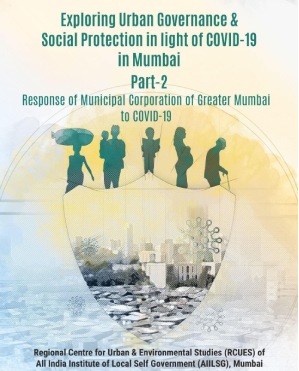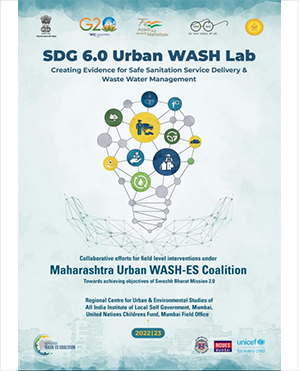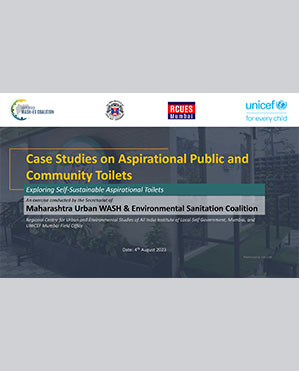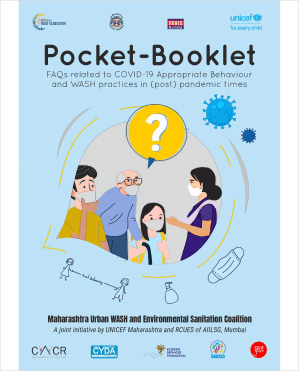Fecal sludge and septage management is a critical priority for states and cities across India. Despite efforts, no city in India is fully sewered, making septage management an urgent need. The 2017 National Policy on FSSM highlighted the importance of addressing this issue.
Maharashtra is one of the pioneering states to have implemented FSSM across urban Maharashtra with adoption of systematic and innovative approaches.
RCUES of AIILSG, Mumbai along with UNICEF, Maharashtra with the support of the Government of Maharashtra, in collaboration with the Urban Development Department (UDD) and the Water Supply and Sanitation Department (WSSD), has developed an innovative package to implement urban-rural convergence (URC) in Fecal Sludge and Septage Management (FSSM). This package, comprising nine documents (eight modules and an introduction), is specifically designed to assist local governments in Maharashtra in effectively adopting and implementing URC in FSSM.
Background and Development
These modules were meticulously developed and updated based on the insights and feedback gathered from pilot regional training programs conducted across the state. The training programs were organized in partnership with UDD and WSSD, ensuring the modules are tailored to the needs and challenges faced by ULBs in Maharashtra.
Structure of the modules
The package consists of the following documents:
- Introduction to the Modules: An overview of the entire training package, outlining the purpose, scope, and intended outcomes.
- Module 1 – Moving Towards Safely Managed Sanitation (SMS) in Maharashtra to achieve SDG 6
- Module 2 – Concept, Scope, State Approach and Field Assessment.
- Module 3 – Technologies for FSSM Cost-effective, easy-to-operate and maintain technological options in FSSM.
- Module 4 – Indapur – Pilot Implementation of URC
- Module 5 – Ratnagiri – Pilot Rural Urban Convergence for FSSM in Ratnagiri District
- Module 6 – District Plan for FSSM
- Module 7 – Systematic approach towards URC
- Module 8 – Group work and activities
Focus and Importance
These modules represent a pioneering effort to guide ULBs in Maharashtra towards initiating and implementing URC in their localities. The toolkit provides systematic steps for ULBs, ensuring they have the necessary knowledge and tools to manage fecal sludge and septage effectively.
A key aspect covered in the modules is the details of technologies available to successfully implement FSSM and the step by step approach for implementation for URC. In addition, the assessment of existing treatment facilities in urban areas across the state. This includes identifying opportunities for refurbishing existing infrastructure to strengthen URC models. By doing so, ULBs can enhance the quality of treatment and increase the sustainability of the infrastructure.
Conclusion
The Government of Maharashtra’s initiative to develop these comprehensive modules marks a significant step towards achieving effective FSSM through URC. By equipping ULBs with structured guidance and practical tools, these modules aim to enhance sanitation management, ultimately contributing to better public health outcomes and environmental sustainability in the state.





